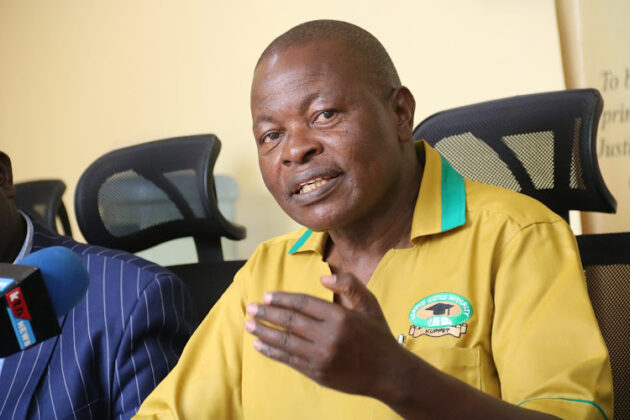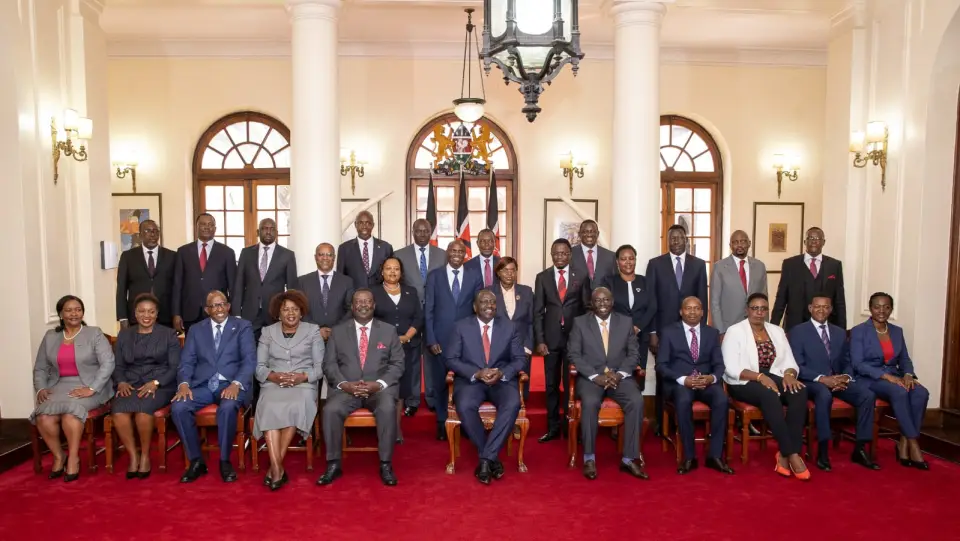By The Weekly Vision
A faction of teachers across the country has accused the government, through the Teachers Service Commission (TSC), of misleading top officials of the Kenya Union of Post-Primary Education Teachers (KUPPET) into prematurely ending a nationwide strike. This strike, which lasted for two weeks, was intended to address significant grievances from the teaching profession. According to these teachers, their concerns were not fully addressed before the strike was called off.
The dissatisfaction has now extended to several branches of the union, where there are increasing calls for the resignation of KUPPET Secretary General Akello Misori and Chairman Omboko Milemba. Critics argue that these leaders acted without adequate consultation with rank-and-file teachers before agreeing to end the strike.
Among the prominent critics are KUPPET Assistant National Treasurer Ronald Tonui and various branch secretaries, including Sabala Inyeni (Vihiga), Faith Kebut (Baringo), Joseph Abincha (Kisii), Paul Rotich (Nandi), and Robert Miano (Laikipia). In interviews with The Weekly Vision, these officials expressed frustration, stating that after the strike, teachers were left “empty handed.” They assert that union leaders were persuaded to accept the implementation of only the second phase of the Collective Bargaining Agreement (CBA), which resulted in a modest salary increase of Ksh 1,000—an outcome they consider insufficient and not aligned with the teachers’ primary concerns.
Tonui claims that the decision to call off the strike was made secretly by just five members of the National Executive Board (NEB), excluding himself, Sammy Chelang’a, and Edward Obwocha. He notes that Chairman Milemba was absent due to personal bereavement during the negotiations. Tonui argues that the main issues—such as long-standing stagnation in one grade, promotion of technical teachers transferred to the Public Service Commission (PSC), improvements to medical coverage, payment of special and acting allowances, hiring 46,000 Junior Secondary School (JSS) intern teachers on permanent and pensionable terms, updating career progression guidelines, and ensuring proper remittance of third-party deductions—were not adequately addressed. Tonui criticized the TSC for providing only vague promises about addressing these issues in the future, dependent on available funds, rather than delivering concrete solutions.
In response, KUPPET Secretary General Akello Misori dismissed these criticisms as politically motivated. He argues that most teachers’ concerns were addressed, with only a few issues postponed due to funding constraints. Misori highlights that this strike marked a historic achievement, as the return-to-work agreement was formalized through court consent, a first for any Kenyan union.
Misori enumerates several successes from the strike: the implementation of the second phase of the CBA, restoring the TSC budget to its original Ksh 22 billion from the reduced Ksh 11 billion, revising career progression guidelines, enhancing Minet insurance services, and ensuring the remittance of third-party deductions. He contends that the strike was successful because it achieved nearly all the objectives outlined in the consent agreement. He questions whether it would have been feasible to force the government to employ the 46,000 JSS interns when funds were unavailable.
Misori also implied that some officials now accusing him of betrayal are using these accusations for personal political gain in anticipation of the 2026 union elections. He insists that all NEB members who were available participated in the negotiations, except for the chairman, who was dealing with personal loss.





